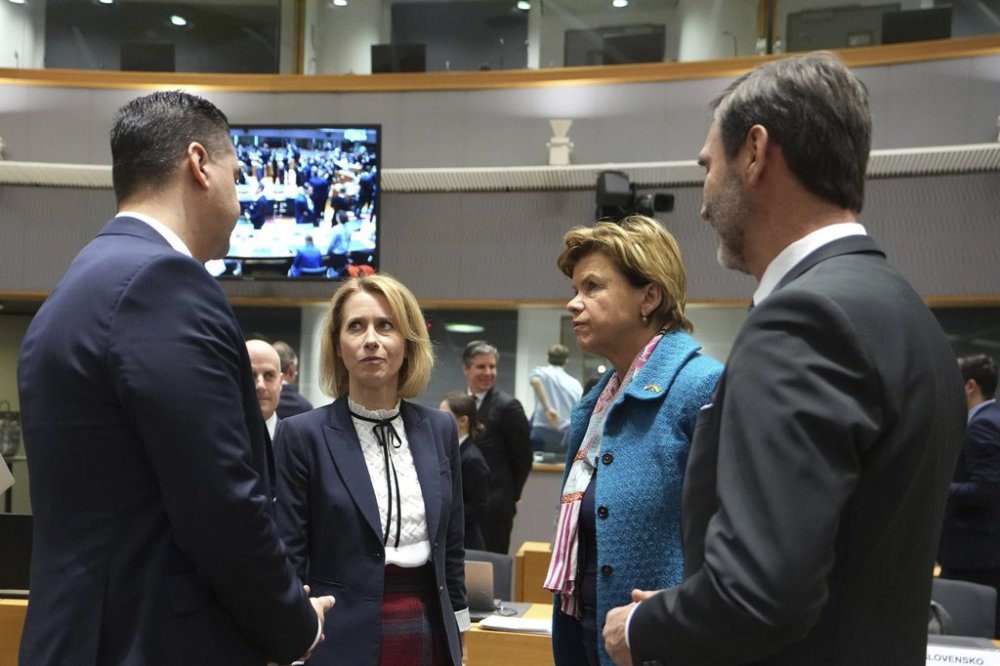EU prolongs its Russia sanctions for 6 months after Hungary lifts its objections
Advertisement
Read this article for free:
or
Already have an account? Log in here »
To continue reading, please subscribe:
Monthly Digital Subscription
$0 for the first 4 weeks*
- Enjoy unlimited reading on winnipegfreepress.com
- Read the E-Edition, our digital replica newspaper
- Access News Break, our award-winning app
- Play interactive puzzles
*No charge for 4 weeks then price increases to the regular rate of $19.00 plus GST every four weeks. Offer available to new and qualified returning subscribers only. Cancel any time.
Monthly Digital Subscription
$4.75/week*
- Enjoy unlimited reading on winnipegfreepress.com
- Read the E-Edition, our digital replica newspaper
- Access News Break, our award-winning app
- Play interactive puzzles
*Billed as $19 plus GST every four weeks. Cancel any time.
To continue reading, please subscribe:
Add Free Press access to your Brandon Sun subscription for only an additional
$1 for the first 4 weeks*
*Your next subscription payment will increase by $1.00 and you will be charged $16.99 plus GST for four weeks. After four weeks, your payment will increase to $23.99 plus GST every four weeks.
Read unlimited articles for free today:
or
Already have an account? Log in here »
Hey there, time traveller!
This article was published 27/01/2025 (281 days ago), so information in it may no longer be current.
BRUSSELS (AP) — The European Union agreed a 6-month extension Monday for a raft of sanctions aimed at depriving Russia of funds to finance its war against Ukraine after Hungary lifted its objections to the move.
The sanctions target trade, finance, energy, technology, industry, transport and luxury goods. They include a ban on the import or transfer of seaborne crude oil and certain petroleum products from Russia to the EU. They will now remain in place at least until July 31.
Some measures were introduced in 2014 after Russia annexed Ukraine’s Crimean Peninsula, but the list grew significantly after Moscow’s full-fledged invasion of its neighbor almost three years ago.

On Friday, Hungarian Prime Minister Viktor Orbán called on the EU to intervene in a gas dispute that his country has with Ukraine. He said Kyiv’s decision to halt the transit of Russian gas into Central Europe had forced Hungary to turn to alternative routes, which raised energy prices.
To satisfy Orbán’s demand, the European Commission attached a statement to Monday’s sanctions rollover agreement, saying that it “expects all third countries to respect” EU energy security, and warned that it could take action to protect critical infrastructure like oil and gas pipelines.
“Hungary has received the guarantees it has requested concerning the energy security of our country,” Hungarian Foreign Minister Péter Szijjártó said in a statement. All 27 EU member countries must agree for the sanctions to be prolonged.
But already last week EU diplomats and officials expected Hungary to end its threatened blockade on the measures after U.S. President Donald Trump threatened to impose stiff taxes, tariffs and sanctions on Russia if an agreement isn’t reached to end the war in Ukraine.
In a post to his Truth Social site last Wednesday, Trump urged Russian President Vladimir Putin to “settle now and stop this ridiculous war.” Orbán is seen as Putin’s closest ally in the 27-nation EU, but he’s also a staunch admirer of Trump.

